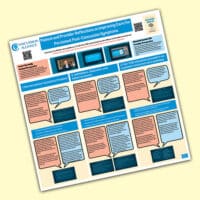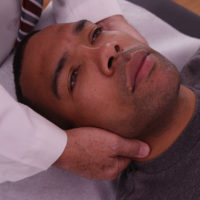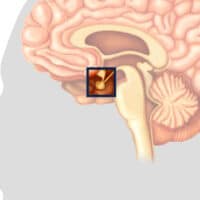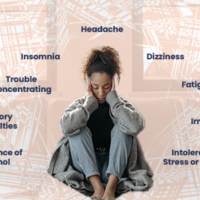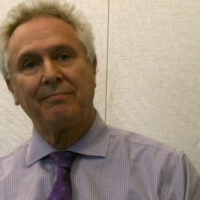Archive
Post-Concussion Syndrome
What is post-concussion syndrome and what are the symptoms? How does post-concussion syndrome differ from a concussion or mild brain injury?
Treatment and Prognosis after a Concussion
Learn about treatments for post-concussion symptoms—including medication, various rehabilitation therapies, neuropsychology, and potentially some complementary therapies—as well as factors related to longer concussion recovery times.
Patient and Provider Perspectives on Improving Care for Post-Concussion Symptoms
This poster, created for the International Brain Injury Conference in New York in Sept 2022, offers various perspectives on how to improve concussion care. Attached are a reformatted poster presentation and related webinar links.
Why is “Post-Concussion Syndrome” Controversial?
We do not yet have a clear understanding of what happens in the brain immediately after a concussion and over the days and months that follow, especially for those patients whose symptoms persist. Post-concussion symptom rates vary greatly among research studies, likely because the populations studied are diverse and so are the diagnostic criteria and timing of assessments. The wide variation in symptom rates highlights the fact that there is a lot we still don’t know about concussions.
Is Concussion a Diagnosis?
Clinicians like me say that concussion requires a clinical diagnosis based on the history of what happened to produce the symptoms. However, because these same symptoms appear in other conditions, and we don’t have reliable biomarkers, diagnosing a concussion can sometimes be a challenge. The lingering effects of a mild brain injury can also continue as a chronic condition, often referred to as post-concussion syndrome or persistent post-concussion symptoms, that still require treatment.
How Does Brain Trauma Affect Brain Hormones?
Evaluating and treating people with hormonal deficiencies after traumatic brain injury (TBI) can be very challenging. Learn about the screening and treatment of pituitary deficiencies that may occur in both the acute and chronic stages after a concussion or other TBI.
Opioids Cause Problems After a Brain Injury
Stories of opioid-related disability and death are in the news frequently because of a surge in the use of these substances over the past few decades. For people with a history of brain injury, including concussions, the risks of using opioids are higher than for those without this medical history. Learn about the benefits and dangers of these substances, some of which are not only legal but widely prescribed for acute and chronic pain.
What is Post-Concussion Syndrome?
I recently talked with journalist Nathaniel Parish Flannery who writes about cycling. He was writing an article about pro cyclist Ian Boswell. Boswell had a crash in 2019 that resulted in long-term concussion symptoms. Flannery found our conversation and my book, Shaken Brain, very helpful, and he tells Boswell’s story in…
The Post-Concussion Syndrome
Physiatrist Dr. Mel Glenn discusses the evaluation of the many symptoms that are part of a chronic condition called post-concussion syndrome or disorder that occurs in some patients after a concussion. He offers advice on the treatment of headaches, sleep disturbances, and other conditions.
Keep up to date
Get updates on the latest in concussion, brain health, and science-related tools from Dr. Elizabeth Sandel, M.D.
By clicking SIGN UP, you agree to receive emails from Dr. Sandel and agree to our terms of use and privacy policy.

